Today in history: James Watt
Hello Steemians!
Welcome to today's episode of the "Today in History" serial, where I bring you daily historical facts and events of the current date, thou today it could be named "Yesterday in History" as I am writing about James Watt.
James Watt, a Scottish inventor, engineer and chemist was born on yesterday's day, January 19, 1736. in Greenock.
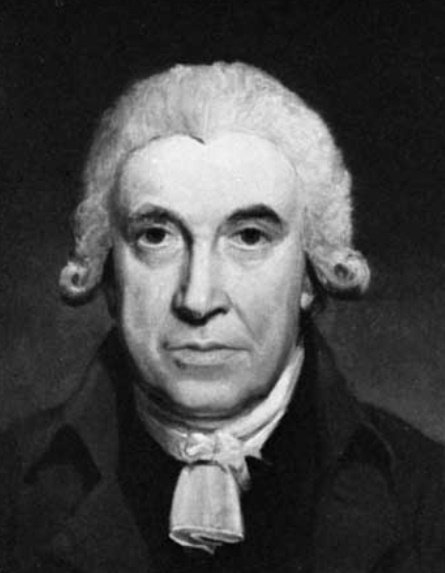
From the very early years of schooling he showed talent for engineering and mathematics.
At first, Watt was schooled at home, later he started going to the Greenock Grammar School.

Greenock
His mother died when he was at the age of eighteen. Watt then moved to London where he studied instrument making and after a year moved to Glasgow where he tried to start an instrument-making business.
Due to lacking of serving as an apprentice, the Glasgow Guild of Hammermen denied his his application.
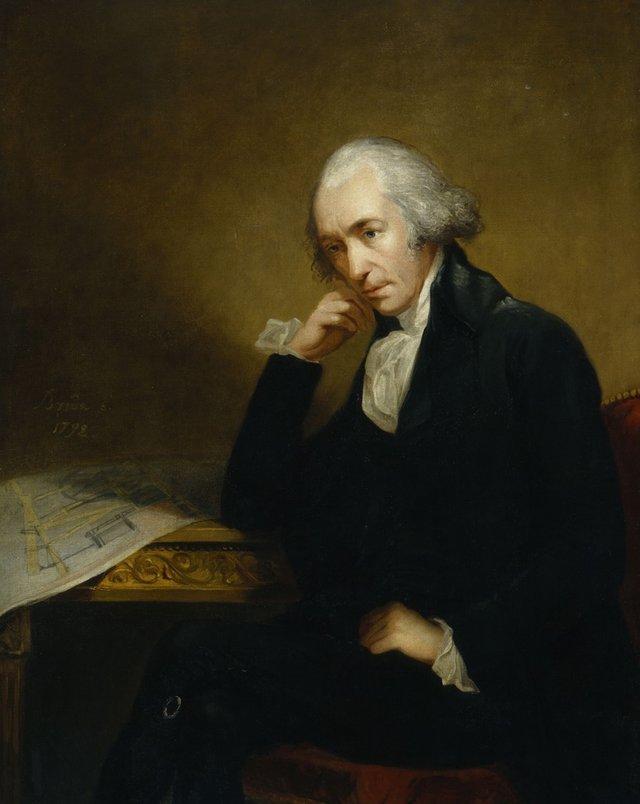
James Watt - Carl Frederik von Breda
As astronomical instruments arrived at the University of Glasgow, and Watt was the only instrument maker, he was eventually hired to maintain them and was given a workshop in the university.
In 1759. he started working together with John Craig, starting to manufacture various products including musical instruments and toys.
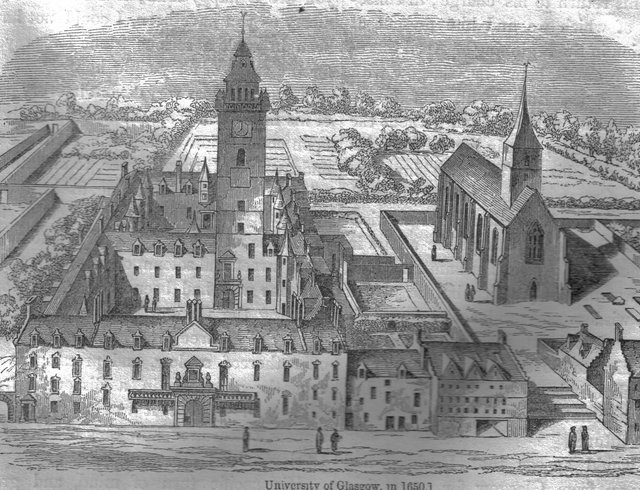
In the same year Watt started to experiment with steam and.
In 1763 he was asked to repair a Newcomen steam engine of the University of Glasgow which just made him more interested in the subject.
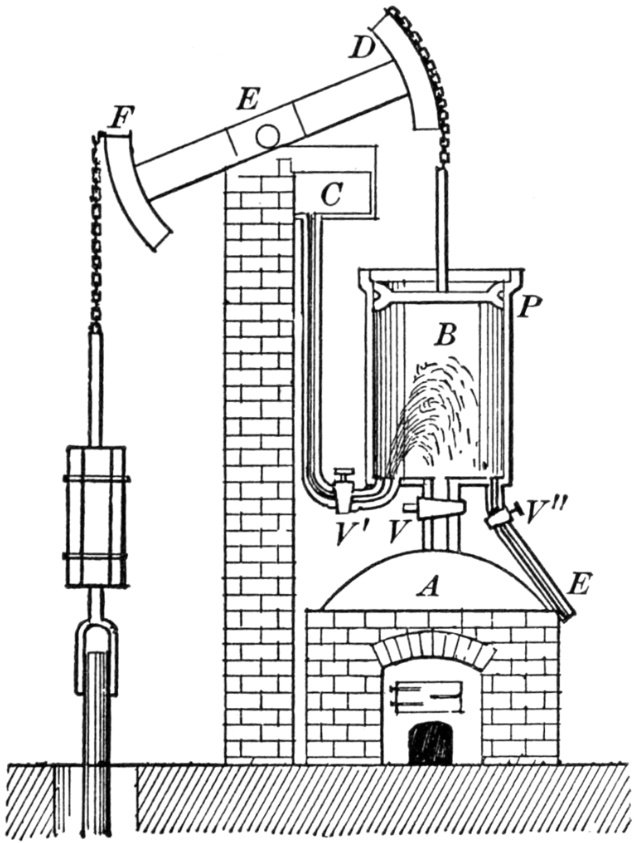
Newcomen steam engine - diagram
After further experiment he had a breakthrough in May 1765. and started working on his own model of a steam engine with a working prototype ready later on that year.
John Craig died the same year and Watt started looking for funding to produce a full scale model of his steam engine.
Much of the financial backing was provided by John Roebuck, who lived at Kinneil House, where Watt built his first steam engine.
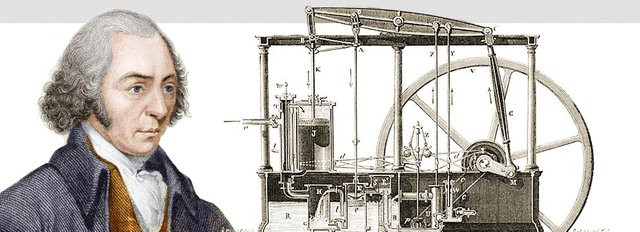
In 1779, Watt began experimenting with old mechanical copying method with multiple linked pens.
Giving up on the old method he began developing a way to transfer ink from the front of the a original paper to the back of another plain one.
Over the course of the next few year he perfected his invention and it became widely used in offices around the world even in the twentieth century.
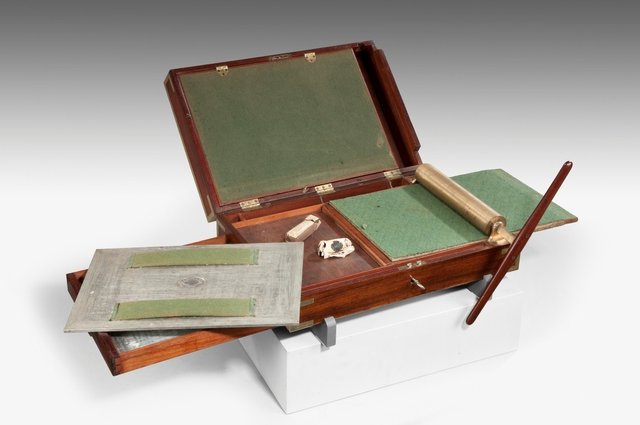
Portable copying machine by James Watt
Around 1787. he began experimenting with chemicals and started developing bleaching mixtures.
In 1794. Watt has been employed by Thomas Beddoes to manufacture apparatus to produce, clean and store gases for use in the new Pneumatic Institution at Hotwells in Bristol.
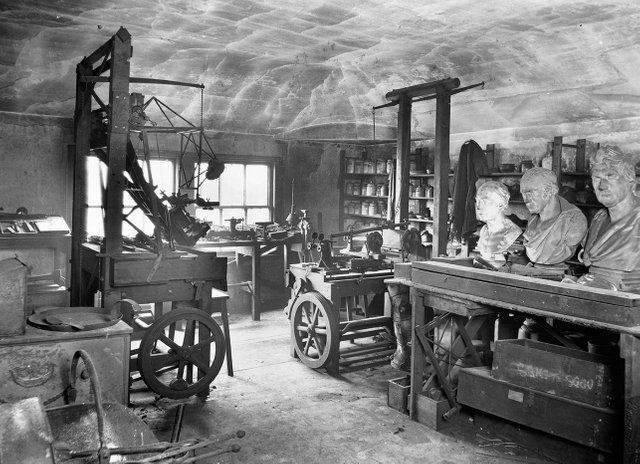
Watt's workshop
Watt retired in 1800, but continued to work as an inventor.
At his home "Heathfield Hall" in Handsworth he had a workshop where he invented many more things like copying machines for sculptures and medallions.
He died on August 25, 1819. at the age of 83. and was buried on September 2, on the St Mary's Church, Handsworth graveyard.
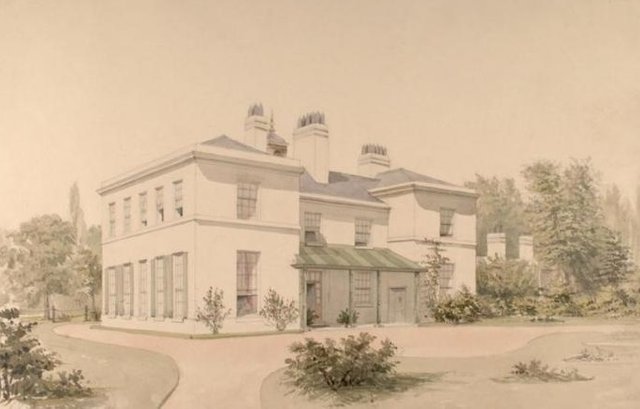
Heathfield Hall - Allen Edward Everitt
Thank you very much for taking the time to read! I hope you liked this episode!
I felt that both, Poe and Watt deserve a mention so I couldn't help but take a step into yesterday again!
Sources:
https://en.wikipedia.org
http://www.engineeringhalloffame.org
https://www.britannica.com
http://journal.sciencemuseum.ac.uk
https://www.pinterest.com
http://www.coulborn.com/
https://www.youtube.com
Follow and support me on the @Steemizen project!
